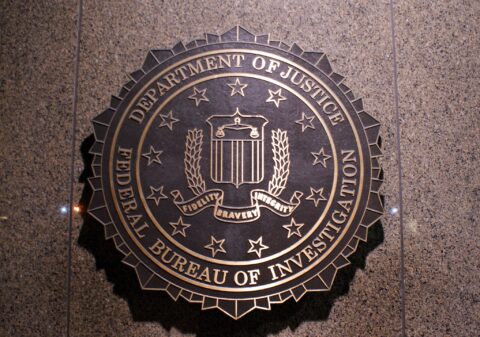Switzerland believed it had reconciled with its Nazi-assisting past after its two largest banks were required to pay over $1 billion in restitution to Holocaust victims following harrowing investigations in the 1990s. However new Bank archives have reportedly yielded documents that suggest it may have been partially a fabrication.
Independent investigators recently discovered a cache of client files bearing the “American blacklist” mark, which is a designation for individuals who finance or trade with Nazis or Axis partners.
This cache was discovered during their investigation of Credit Suisse, one of Switzerland’s largest banks and currently a part of UBS.
The investigators, who thoroughly examined dusty ledgers and microfilm that had not been included in previous evaluations of the dark chapter, also discovered indications of a coverup.
Two panels conducted research on Swiss banks’ activities during World War II in the 1990s in response to the eruption of fury regarding the unreleased funds of Holocaust victims.
However, upon taking a fresh look, the investigators discovered that Credit Suisse had withheld critical information.
Several Nazi-linked accounts were discovered by the bank in the 1990s but were never disclosed to investigators.
Additionally, they disclosed new information regarding an operational account operated by senior Nazi SS officers and a Swiss intermediary that was purportedly employed to transport and store confiscated assets.
During an investigation conducted by Neil Barofsky, an independent ombudsman, the results were disclosed.
After the Simon Wiesenthal Center discovered information regarding potential Nazi clients that had not been previously disclosed, Credit Suisse engaged the former U.S. prosecutor, who is currently a partner at the law firm Jenner & Block, beginning in 2021.
When Barofsky was terminated from the investigation by Credit Suisse two years ago, the Senate Budget Committee became involved.
The findings of the investigation were downplayed by bank executives, who believed that he had exceeded the boundaries of their expectations.
The State Department’s Office of the Special Envoy for Holocaust Issues, which is responsible for advocating for reparations for Nazi-era atrocities, is under the jurisdiction of the committee.
In late 2023, Barofsky was reinstated as a result of UBS’s emergency rescue of Credit Suisse.
The Wall Street Journal reviewed a December 2024 letter to the Senate in which Barofsky stated that Credit Suisse and its new owner, UBS, have fully opened their archives and have assigned over 50 individuals to work on the investigation.
The scope of the task is illustrated by recent photographs taken by a visitor to one of the bank’s archives in Zurich.
The rooms are stuffed with pallets of boxes that are stacked from floor to ceiling, as well as an assortment of old ledgers, computers, and hard-drive disks that all contain client records.
An estimated 3,600 crates from the “Inf department” were concealed in storage. These boxes contained client information, including those who were on the U.S. wartime blacklist for supporting the Nazi cause.
The Inf department files were compared by Barofsky to the “know your customer” information that banks maintain on their clients.
In an initial search of 99 known Nazis and affiliates, 13 name matches were identified. Several files, he stated, bore the American blacklist marking, a feature that his team had not previously observed in other Credit Suisse archives.
While conducting the new investigation, which involved interviews with former bank employees who were involved in the 1990s research, Barofsky discovered evidence that the bank was concealing its involvement by failing to disclose its knowledge.
At that time, the outside panels were not provided with critical information and pertinent accounts, such as information regarding the account that was under the custody of Nazi SS officers and a Swiss intermediary, which was Adolf Hitler’s elite paramilitary body.
Businesses that utilized the accounts advanced the regime’s economic objectives by seizing businesses from Jewish proprietors and employing forced labor at concentration camps.
In the 1990s, a registry card for the SS-linked account was discovered and reported to higher-ups, as per the former employees and the documents and emails that were uncovered in the new investigation.
In April 2023, Credit Suisse stated that bank historians had not previously associated the registry card with the account in question, including in the 1990s evaluations.
When questioned about the account by one of the panels in 2001, Credit Suisse stated that it did not possess any documents that suggested a business relationship with the SS holding company. Consequently, the panel concluded that the documents had been destroyed.
[READ MORE: Biden Blocks Sale of US Steel to Japanese Giant]














